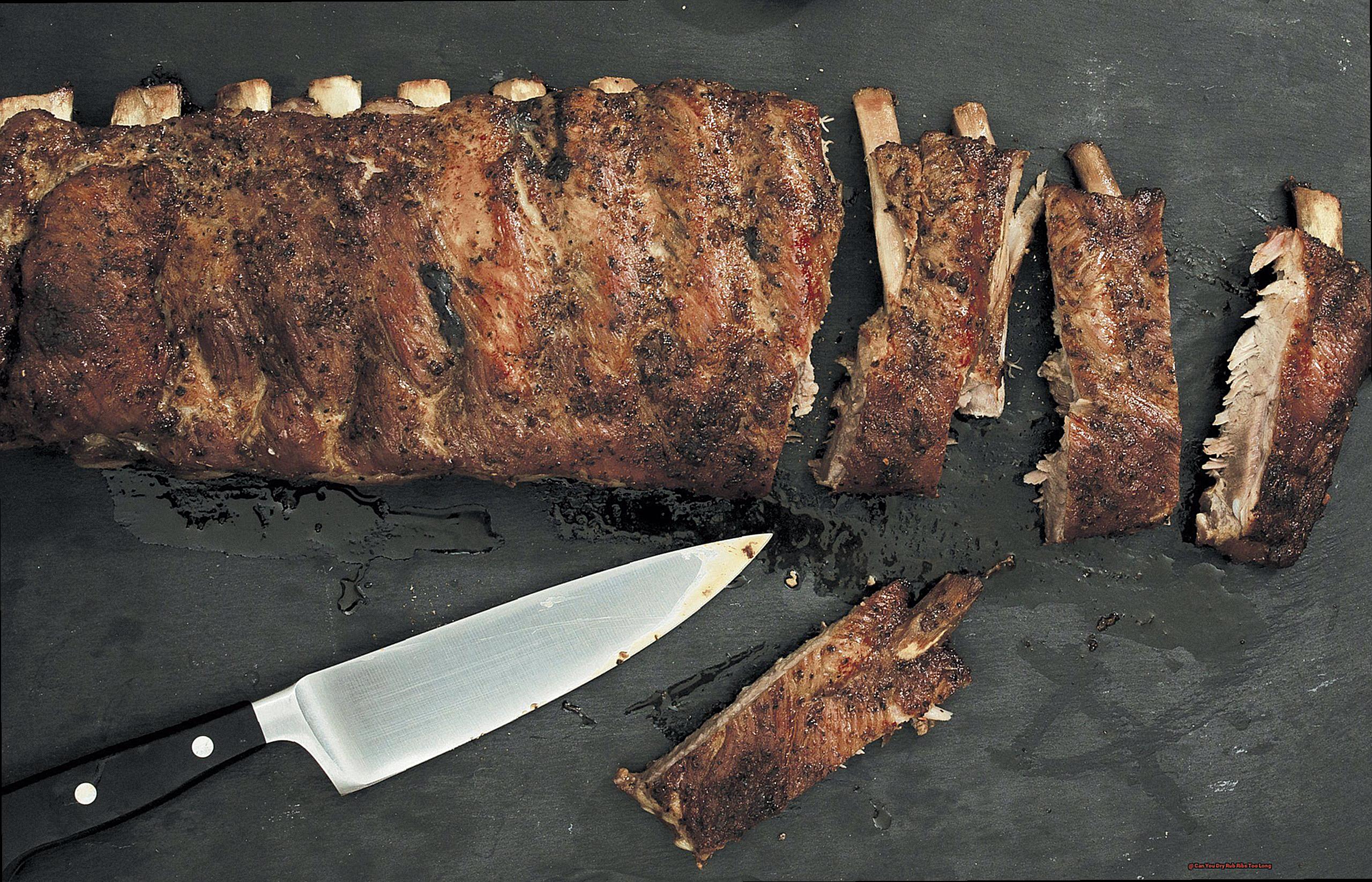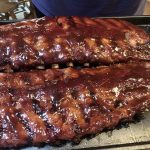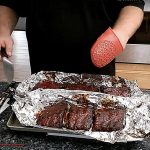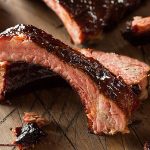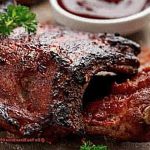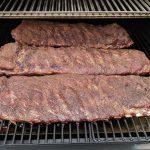Imagine this: the sun is shining, birds are chirping, and the smell of BBQ ribs fills the air. You’ve been marinating them for hours, carefully selecting the perfect dry rub to enhance their flavor. As you eagerly take your first bite, your taste buds are met with disappointment – the ribs are dry and lack that irresistible smoky taste.
Yes, it’s possible to dry rub ribs too long, and it can ruin your BBQ experience. But don’t worry – we’ve got you covered with some helpful tips to avoid this common mistake.
First off, let’s talk about why over-drying ribs is a big no-no. When meat loses its natural juices due to excessive rubbing or cooking time, it becomes bland and flavorless. No one wants to sink their teeth into a tough, chewy rib with no flavor.
Not only does over-drying affect taste, but it also impacts texture and nutrients. Dry ribs can be tough and difficult to eat, ruining the overall enjoyment of your meal. Plus, overcooking or over-drying meats can lead to a loss of essential nutrients like protein and vitamins.
So why risk wasting time and money on dry ribs? Instead, follow our tips for perfectly cooked ribs every time. Stay tuned for our next blog post where we’ll share our secrets on how to achieve juicy and flavorful ribs without any dryness in sight.
Trust us – your taste buds will thank you for avoiding this common BBQ blunder.
Contents
The Basics
Dry rubbing is a method used to enhance the taste and tenderness of ribs that are cooked slowly. It involves applying a blend of herbs, spices, and seasonings, also known as a dry rub, to the ribs before cooking them. The dry rub is then massaged into the meat and left to marinate for a specific amount of time to allow the flavors to infuse into the meat.
Dry rubbing affects the flavor and tenderness of ribs in various ways. The combination of herbs, spices, and seasonings in the dry rub adds layers of complex flavors to the meat. A well-balanced dry rub consists of sweet, savory, and aromatic elements that work together to create a harmonious blend of flavors. This results in a delectable crust on the outside of the ribs.
Moreover, resting the ribs after applying the dry rub allows the flavors to seep into the meat and creates a caramelized surface during cooking. This adds depth and intensity to the flavor profile of the ribs. Slow-cooking at low temperatures is also crucial for tender and flavorful ribs. Popular cooking techniques include using a smoker, grill, slow cooker, or oven.
The duration that the dry rub is left on the ribs also has an impact on their flavor and tenderness. A shorter marination time provides a quick flavor boost, while longer marination times result in deeper flavor penetration and changes in texture. A 2-hour marination allows for a well-balanced blend of flavors and slight alterations in texture, while overnight marination produces gourmet-level ribs with intense flavors and melt-in-your-mouth tenderness.
In conclusion, dry rubbing is a crucial step in creating delicious and tender ribs. By selecting complementary ingredients and giving enough time for marination, dry rubbing can take your BBQ experience to the next level.
The Importance of Timing
The perfect timing for dry rubbing ribs is a matter of personal preference. The recommended timeframe ranges from 30 minutes to 24 hours before cooking, allowing the flavors to permeate the meat and form a delectable crust.
However, there is no definite timeframe that can be considered the best for dry rubbing ribs. It ultimately depends on individual taste and the desired level of flavor and tenderness.
Here is a table that breaks down the various time frames and their effects on ribs:
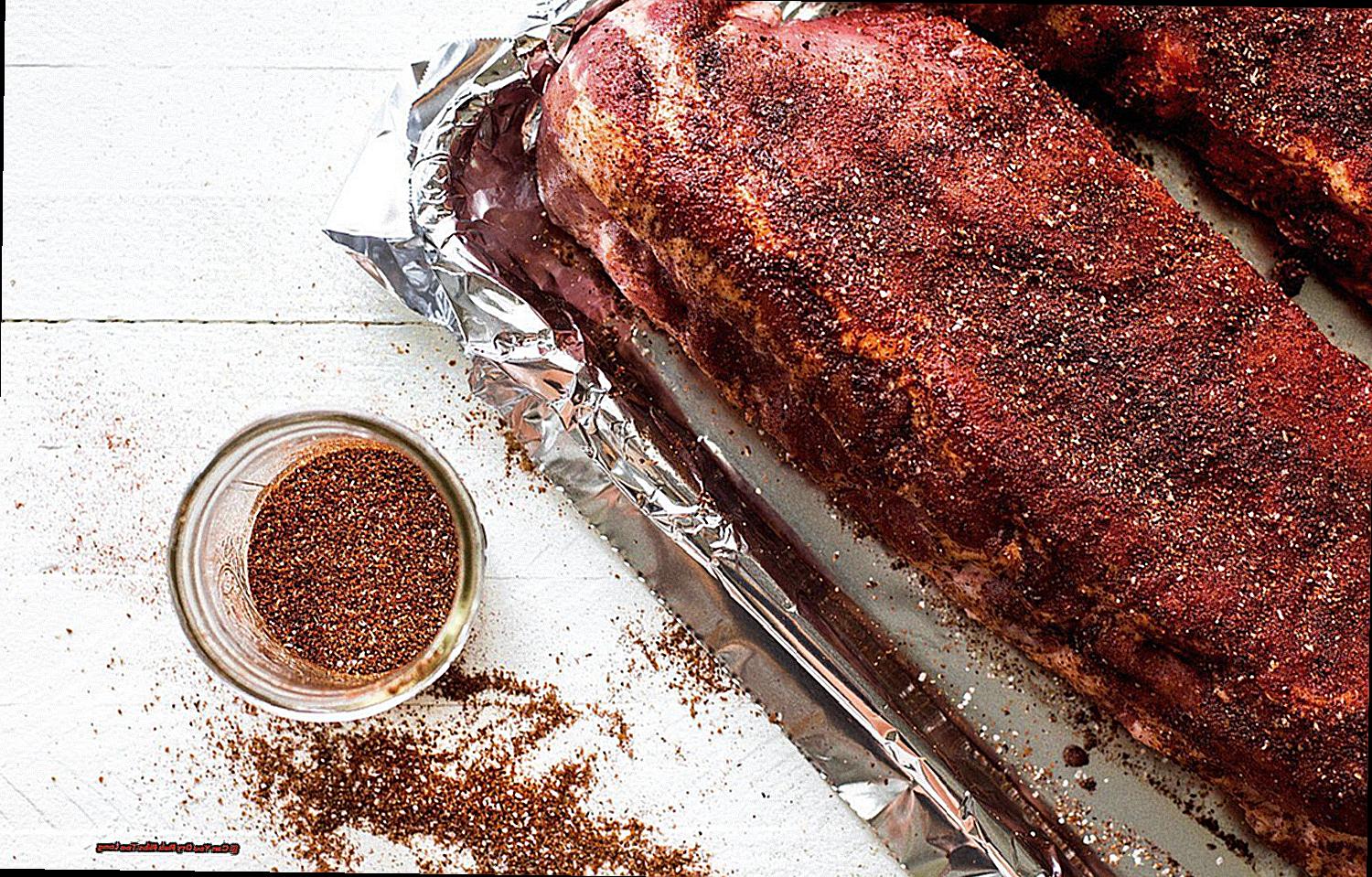
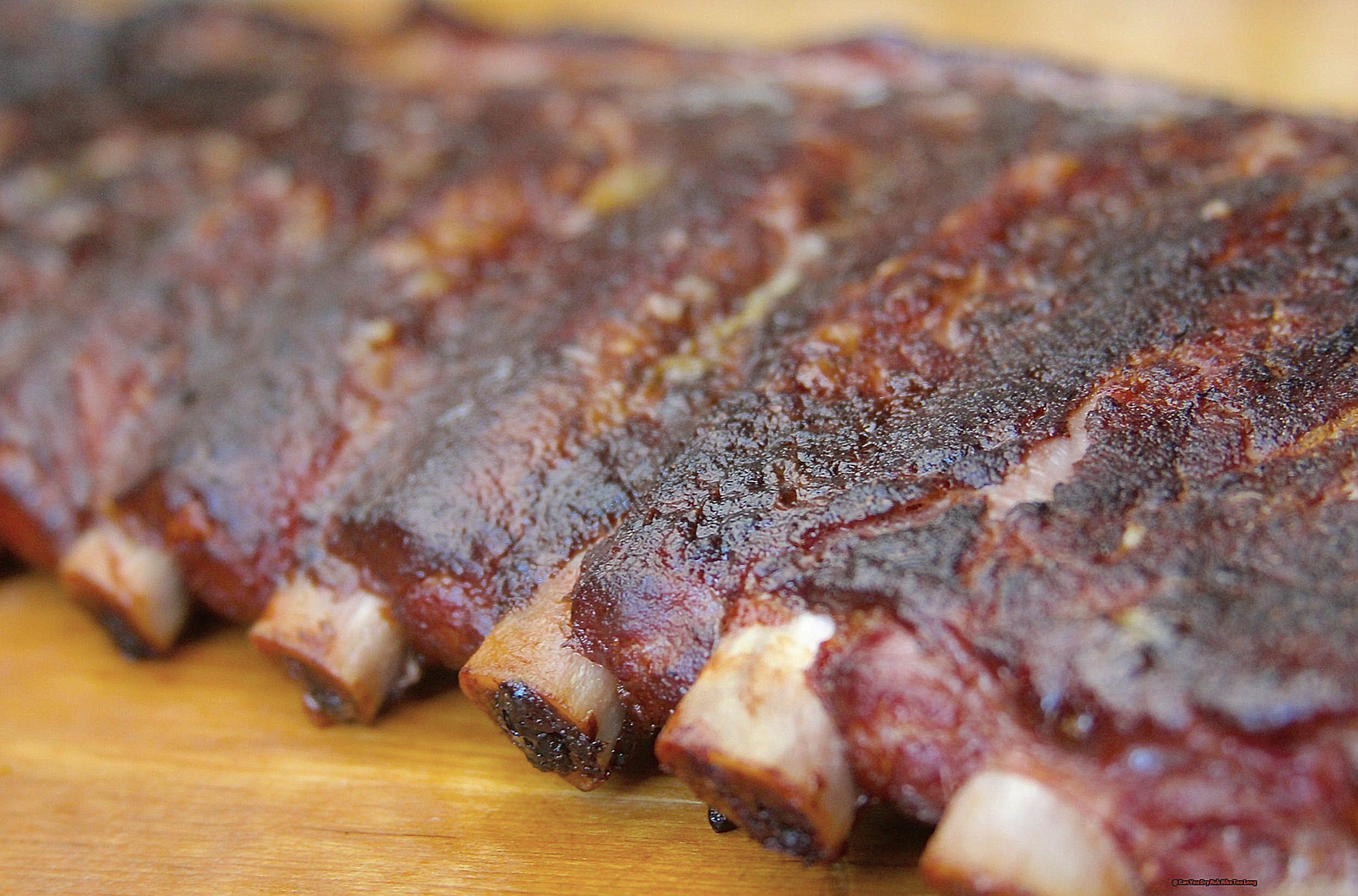
| Time Frame | Effect on Ribs |
| 30 minutes – 1 hour | Minimal flavor infusion and tenderness, but still adds a layer of complexity to the ribs. |
| 2-4 hours | Increased flavor infusion and tenderness, creating a more delicious and tender rib. |
| Overnight (8-12 hours) | Gourmet-level ribs with intense flavors and maximum tenderness. |
| 24 hours or more | Risk of drying out the meat, resulting in less desirable texture and flavor. |
It is worth noting that while longer marination times result in more flavorful and tender ribs, it is not advisable to leave the dry rub on for more than 24 hours. This can lead to dryness in the meat, affecting the overall quality of the ribs.
To summarize, there is no set time frame for dry rubbing ribs. However, it is generally recommended to let the rub sit on the ribs for at least 30 minutes to 24 hours before cooking. This ensures optimal flavor infusion and tenderness without risking over-marination.
Quick Fix: 15 Minutes Marination
Achieving perfectly marinated ribs requires careful consideration of the optimal marination time. It is recommended that ribs be marinated for a minimum of 2 hours and a maximum of 6 hours to allow for absorption of flavor without compromising texture. Refrigeration is essential during the marination process and it is important to avoid reusing marinade.
Sub-heading: Tips for Marinating Ribs
Marinating ribs is an essential step in creating mouth-watering, flavorful ribs. Here are some helpful tips to keep in mind when preparing your ribs for marination:
- Ensure that the container or plastic bag used for marinating is large enough to fully submerge the ribs in marinade.
- Thoroughly coat all sides of the ribs with marinade to ensure even flavor distribution.
- Before marinating, use a fork to puncture holes in the meat which will allow for better penetration of the marinade.
- Store marinating ribs in the refrigerator, not at room temperature.
- To avoid contamination, do not reuse marinade that has come into contact with raw meat.
- Acidic marinades, such as lemon juice or vinegar, should not be left on the ribs for longer than 2 hours as they can cause the meat to become mushy.
Table: Recommended Marination Times for Ribs
| Marination Time | Resulting Flavor | Tenderness |
| 30 minutes | Mild flavor | Firm texture |
| 2 hours | Medium flavor | Tender but firm texture |
| 4 hours | Bold flavor | Tender texture |
| 6 hours | Strong, intense flavor | Melt-in-your-mouth tenderness |
| 24 hours (maximum) | Overpowering flavor | Dry texture |
It is important to note that the recommended marination times are just guidelines. The final result may vary depending on personal preference and the type of marinade being used. Stronger marinades may require less time to achieve the desired flavor, while more subtle marinades may need longer to fully infuse the meat.
Additionally, it is crucial to avoid over-marinating ribs. Leaving them in the marinade for too long can lead to a loss of texture and dryness, ultimately ruining the overall taste.
To summarize, the ideal marination time for ribs is between 2 and 6 hours. This timeframe allows for a perfect balance of flavor and tenderness.
2 Hours Marination
Marinating ribs for longer than 2 hours can greatly enhance the flavor and tenderness of the meat. However, marinating for an excessive amount of time can result in a mushy texture and an overpowering taste. It is crucial to find the perfect balance and timing for marinating ribs to achieve the best possible results.
| Marination Time | Impact on Flavor | Impact on Tenderness |
| 2-4 hours | The flavors start to penetrate the meat, enhancing the overall taste. | A slight improvement in tenderness can be noticed. |
| 4-6 hours | The flavors infuse deeper, with a more pronounced taste. | A noticeable increase in tenderness can be observed. |
| 6-8 hours | The flavor becomes strong and may overpower the taste of the meat. | The meat becomes more tender, but may also become mushy if left for too long. |
| Above 8 hours | An overpowering taste that masks the natural flavors of the meat. | Pork ribs become extremely tender, possibly too mushy to hold their shape. |
As depicted in the table above, marinating ribs for longer than 2 hours can have a significant impact on both the flavor and tenderness of the meat. The longer you marinate, the stronger and deeper the flavors will be. However, it is important to be cautious and not marinate for too long, as this can result in a loss of texture and an overpowering taste.
When marinating ribs for longer than 2 hours, it is crucial to pay attention to the ingredients and the quantity used. Stronger and more acidic ingredients, such as citrus juices or vinegar, have the potential to break down the proteins in the meat and result in a mushy texture if left for too long. Additionally, it is essential to avoid reusing marinade that has come into contact with raw meat, as this can increase the risk of foodborne illness.
Overall, marinating ribs for longer than 2 hours can significantly improve the taste and tenderness of the meat. However, it is essential to find the perfect balance and timing to avoid any negative effects.
Overnight Marination
For the best results, marinating ribs with a dry rub should be done for 8-12 hours, no longer. This ensures that the meat remains tender and juicy, without becoming tough and dry. Finding the right balance is crucial as a shorter marination time may result in a lack of flavor and tenderness, while a longer time can negatively impact the texture and taste of the ribs.
Experts recommend marinating ribs with a dry rub for at least 8 hours, but not more than 12 hours. This allows enough time for the flavors to penetrate the meat and tenderize it, without causing any negative effects. However, the exact marinating time may vary based on personal preference and the type of dry rub used. Some sources suggest applying the dry rub after marinating for 2-3 hours, while others recommend using a wet rub for overnight marination.
It is important to keep in mind that marinating ribs with a dry rub for too long can lead to a tough and dry texture. The salt in the dry rub draws out moisture from the meat, making it less juicy and harder to chew. To prevent this, it is recommended to pat the ribs dry before applying the dry rub and monitoring the marinating time closely. Additionally, using a wet rub or adding liquid (such as apple juice or vinegar) to the dry rub can help prevent the meat from drying out during overnight marination.
The following table summarizes the minimum and maximum marination times for different types of dry rubs:
| Dry Rub Type | Minimum Marination Time | Maximum Marination Time |
|---|---|---|
| Basic Dry Rub | 8 hours | 12 hours |
| Sweet Dry Rub | 8 hours | 12 hours |
| Spicy Dry Rub | 8 hours | 10 hours |
| Wet Rub | 2-3 hours | overnight |
In conclusion, overnight marination is a fantastic way to enhance the flavor and tenderness of ribs, but it is essential to find the right balance. The recommended marinating time for dry rubs is 8-12 hours, but this may vary based on personal preference and the type of dry rub used. It is also important to keep an eye on the marinating time and take measures to prevent the meat from becoming tough and dry.
The Role of Meat Quality
The role of meat quality is crucial in determining the optimal duration for dry rubbing ribs.
This underscores the importance of using only fresh, high-quality meat in BBQ rib preparation.
Adjusting to Personal Preference
When it comes to dry rub ribs, personal preferences can greatly influence the amount of time one chooses to let the rub sit on the meat. Some people may prefer a longer duration, while others may opt for a shorter time frame. It all boils down to individual taste and the desired level of flavor and bark formation.
Several factors can impact personal preference when it comes to dry rubbing ribs, including the type of spices used in the rub. Certain spices, such as smoked paprika or cayenne pepper, have a stronger flavor and may require less time to infuse into the meat. Additionally, the desired level of spiciness can also play a role in determining the duration of dry rubbing. Those who prefer a milder spice level may need to let the rub sit for a shorter period to avoid an overwhelming taste.
Furthermore, different cuts of meat may also require varying amounts of time for the dry rub to properly penetrate and enhance the flavor. Time constraints can also be a factor, as some individuals may have limited time to prepare their ribs and may opt for a shorter dry rub time to save time on the day of cooking.
It is essential for individuals to experiment and discover the perfect balance of flavors and bark formation that suits their personal preference when it comes to dry rubbing ribs. Using top-quality spices and fresh meat can significantly impact the overall taste and texture of BBQ ribs.
The Cooking Process
It is suggested that ribs be dry rubbed for a minimum of 30 minutes to 24 hours prior to cooking. This time frame allows for the spices and salt to fully seep into the meat, resulting in a succulent and flavorful end product.
For a thicker and more adhesive bark on your ribs, it is recommended to leave the rub on for at least 2-3 hours or even overnight in the refrigerator. This extended period of time gives the rub more opportunity to penetrate the meat and create a delectable crust on the exterior.
However, it is crucial not to let the rub sit for too long, as this can lead to dry and overly seasoned ribs. It is advised not to exceed 24 hours of marinating time, as this can potentially dehydrate the meat and produce an unfavorable texture.
When determining how long to dry rub your ribs, personal preference and the type of spices and seasonings used should be taken into consideration. Certain spices may be more potent, requiring less time for their flavors to infuse into the meat.
In general, allowing at least 30 minutes for the dry rub to sit on the ribs before cooking is recommended.
Conclusion
In conclusion, the art of dry rubbing ribs is a crucial step in creating mouth-watering BBQ ribs. However, as with any cooking technique, there is a risk of overdoing it. When ribs are dry rubbed for too long, they can end up lacking in flavor and have a tough texture. To avoid this common pitfall, it is essential to find the perfect balance of marination time and use high-quality ingredients.
Whether you prefer a shorter or longer marination time, close monitoring and adjustments based on personal preference and spice selection are key. By following these tips, you can achieve perfectly cooked ribs with a delectable crust and juicy tenderness every time.

